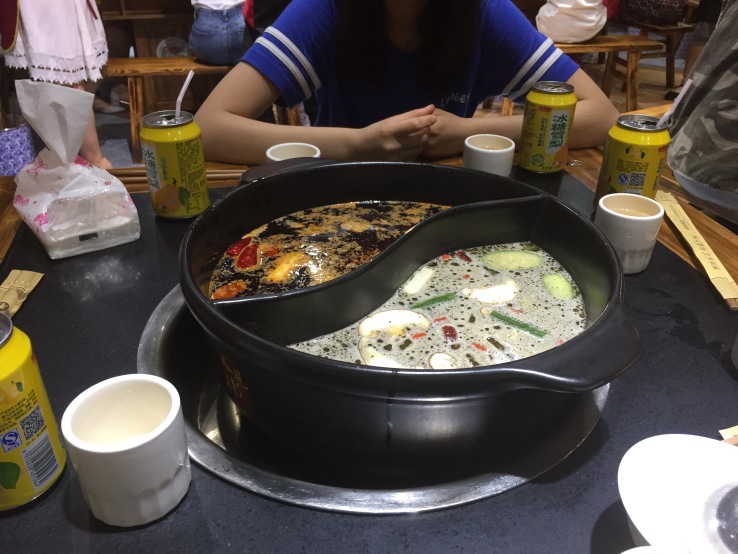Today was informative. We woke up relatively early again, and went to Datong school right away. Once we were at Datong school, they bussed us off to an off campus space where students can learn to 3D print. The office was interesting, but a little underwhelming; it only seemed loosely connected to the school, and it was unclear why Datong decided to show it to us. None the less, it was fun to learn that the students had such interesting opportunities to create things; it was also interesting to see some of the objects the kids had designed.
After visiting the 3D printing space, we went back to the school to interview some students at Datong about our research projects. The student I was paired with had a lot to share about my project. She said that the media had one main message: that America and China can work together, and benefit both countries. Therefore, it does not really matter what America does, as long as it helps China, or at least does not hurt. However, it did not seem as if she was unopinionated when it came to the United States, particularly our president. She told me that she thought Donald Trump was unqualified for his job; she told me she thought he was a businessman, and did not know what he was doing when it came to politics.
After our interviews, we went to a newspaper called Shanghai Daily. The only daily newspaper in Shanghai in English, Shanghai daily is unique. Our visit there was captivating. It was fun to learn about how a real newspaper runs. Shanghai Daily is in an interesting position that is different from most newspapers; it’s largest portion of readers are on a different sleep schedule than the city it writes about. This means that workers there have awkward hours, but it is still a successful newspaper. After getting a tour of the offices, we had the opportunity to view a presentation on Shanghai Daily, and then ask some of the editors and writers questions. During the presentation, we learned that Shanghai Daily is a government affiliated newspaper, and its main purpose is to write about Shanghai. However, Shanghai Daily still reports on the happenings of the world. According to the editors, Shanghai Daily decides what global news by following a simple philosophy: they report on news that matters to the readers and to Shanghai, but try to avoid scandal, and only report the truth. However, I still noticed two articles related to scandals involving Trump. One was on the Trump – Russia Scandal, and the second was about the Australian Prime Minister mocking Trump during a speech. The representation of Trump in Shanghai Daily shows him to be a man underqualified for the Job he has.
After visiting Shanghai Daily, we went to dinner, hosted by the parent of a PA student. All of the meals in China have been enjoyable; regardless of the quality of the food, eating and bonding with friends is a relaxing and fun experience. After dinner, we went back to the hotel, at which point we were all ready to sleep.
